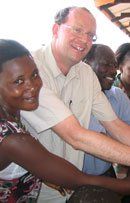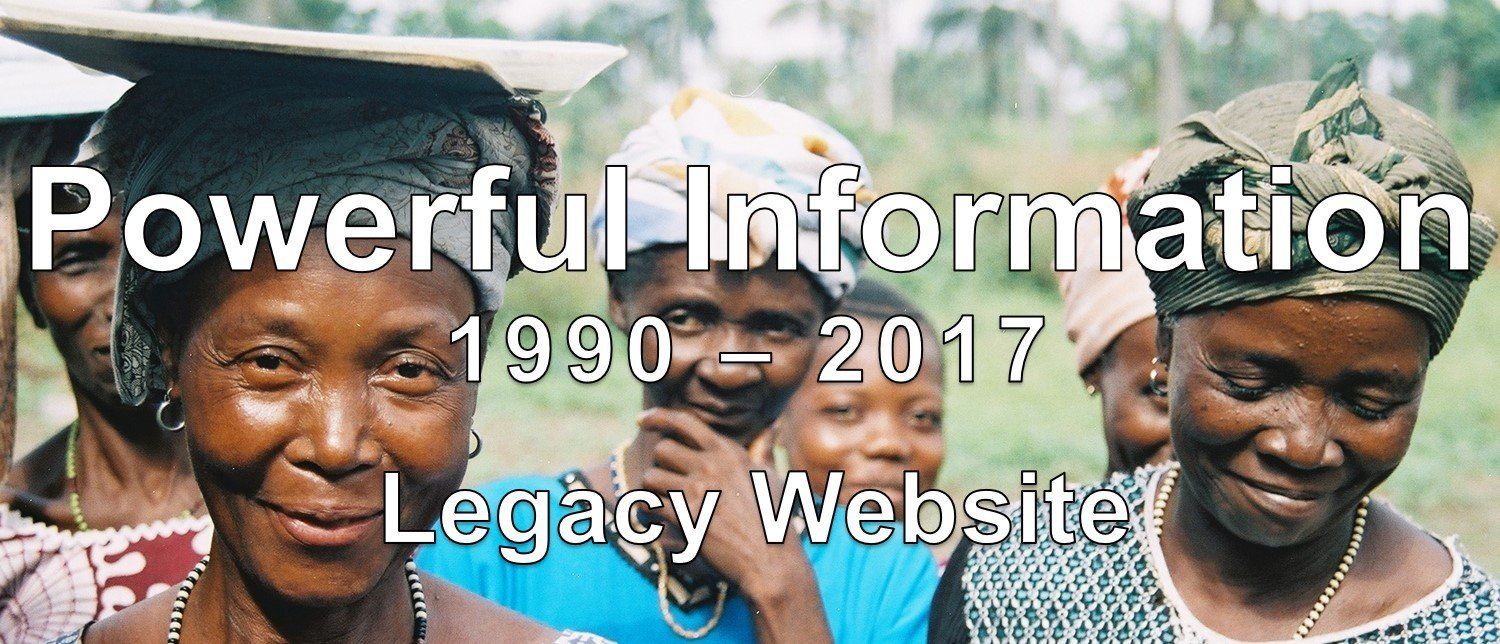Please Note: The material and analysis provided on this website is primarily about what you can expect if you choose to go into international development. It is not about disaster relief, which is a very different discipline. Inevitably it focuses on the kind of problems that you may have to confront when managing projects or working in the field. If this comes across as negative, it is not meant to. Please see the comment (in About) on why people go into development and what they can expect to get out of it — in short, new friends, some deeply memorable experiences, and a great deal of personal satisfaction.
Why Work in International Development?
"Better to light a candle than curse the darkness.” Mahatma Gandhi
"Better to light a candle than curse the darkness.” Mahatma Gandhi
It will be clear from some of the observations and comments on this website that international development is not an easy profession: in addition to the formal qualifications required by charities, it requires a wide range of technical and inter-personal skills and a lot of hard work and patience. It can also involve dealing with difficult and frustrating situations, even putting yourself in uncomfortable and sometimes dangerous situations, so why do it?
Few if any people choose to work in development to get rich or become famous; their drive is invariably altruism — wanting to help and empower others and give something back; but also, pesonal development — wanting to experience different cultures and ways of living, and to develop a betterr understanding of the world. It was Archbishop Oscar Romero who said “Aspire not to have more but to be more.” [*] Development can certainly help you to “be more”.
And the rewards can be considerable: you can get to meet and work with extraordinary individuals, to visit places and see things that tourists rarely do, and to be welcomed into people’s homes. And one can learn so much about oneself in the process — some of Mike’s fondest memories are of the warmth and generosity of people living in difficult circumstances, who to Western eyes have very little, who would nevertheless insist of giving him gifts that they could ill-afford (and he could not refuse to accept for fear of causing offence). The experience of working in very poor and disadvantaged communities can bring new meaning to one’s life. It also provides an insight into the culture and society you have been brought up in and ways of doing things that perhaps you had accepted before without question.
Mike says he learned a great deal about working with and managing people, and trying to understand rather than judge their motives and views. He is particularly pleased to have developed his communication skills (though sadly not his ability to speak other languages) and to have learned how to cope with and manage information. Indeed, much of Powerful Information’s work would have been difficult if not impossible without the databases that he developed for the office.
So we hope nobody will be put off by the challenge of going into development, not least the effort required to get the necessary formal qualifications (and preferably, in-country experience), rather that they will enter the profession prepared and with their eyes open. And then one day they will wake to find that they have done what Mahatma Gandhi so passionately advocated, to be the change they wished to see in the world.
* Archbishop, Oscar Arnulfo Romero, El Salvador's spiritual leader, paid a high price for speaking out for justice and civil rights: he was shot in 1990 by a lone gunman as he took mass in his Church of the Divine Providence.
Few if any people choose to work in development to get rich or become famous; their drive is invariably altruism — wanting to help and empower others and give something back; but also, pesonal development — wanting to experience different cultures and ways of living, and to develop a betterr understanding of the world. It was Archbishop Oscar Romero who said “Aspire not to have more but to be more.” [*] Development can certainly help you to “be more”.
And the rewards can be considerable: you can get to meet and work with extraordinary individuals, to visit places and see things that tourists rarely do, and to be welcomed into people’s homes. And one can learn so much about oneself in the process — some of Mike’s fondest memories are of the warmth and generosity of people living in difficult circumstances, who to Western eyes have very little, who would nevertheless insist of giving him gifts that they could ill-afford (and he could not refuse to accept for fear of causing offence). The experience of working in very poor and disadvantaged communities can bring new meaning to one’s life. It also provides an insight into the culture and society you have been brought up in and ways of doing things that perhaps you had accepted before without question.
Mike says he learned a great deal about working with and managing people, and trying to understand rather than judge their motives and views. He is particularly pleased to have developed his communication skills (though sadly not his ability to speak other languages) and to have learned how to cope with and manage information. Indeed, much of Powerful Information’s work would have been difficult if not impossible without the databases that he developed for the office.
So we hope nobody will be put off by the challenge of going into development, not least the effort required to get the necessary formal qualifications (and preferably, in-country experience), rather that they will enter the profession prepared and with their eyes open. And then one day they will wake to find that they have done what Mahatma Gandhi so passionately advocated, to be the change they wished to see in the world.
* Archbishop, Oscar Arnulfo Romero, El Salvador's spiritual leader, paid a high price for speaking out for justice and civil rights: he was shot in 1990 by a lone gunman as he took mass in his Church of the Divine Providence.
Please Note: The material and analysis provided on this website is primarily about what you can expect if you choose to go into development. It is not about disaster relief, which is a very different discipline. Inevitably it focuses on the kind of problems that you may have to confront when you are managing projects or working in the field. If this comes across as negative, it is not meant to. Please see the comment (in About) on why people go into development and what they can expect to get out of it, not least a great deal of personal satisfaction and fulfilment in life.

“‘For more than 25 years, Mike Flood and Powerful Information worked with humility, resolve and professionalism to assist community-based organisations in poorer countries to address pressing environmental and social issues. The lessons learned from all those years and partnerships deserve to be heard widely across the international development sector.”
Andrew Betts
Director, Advantage Africa (Olney)
Director, Advantage Africa (Olney)

“comment about PI.”
Name 2, city

“comment about PI.”
Name 3, city
